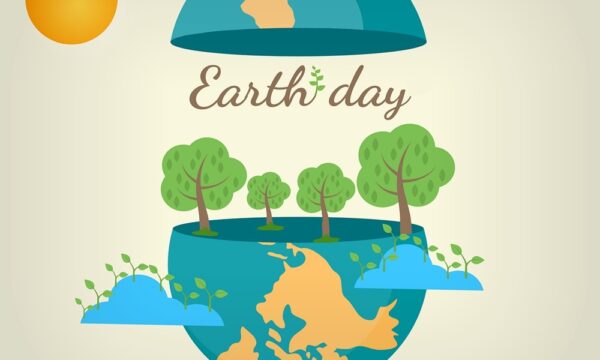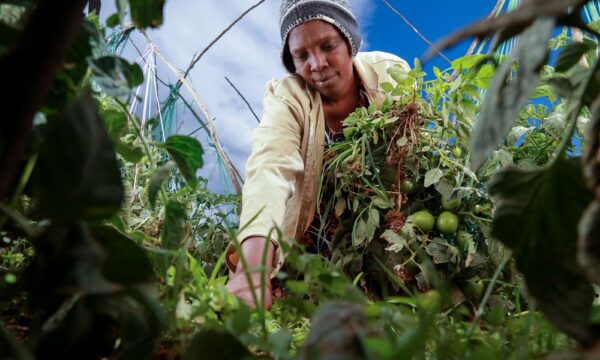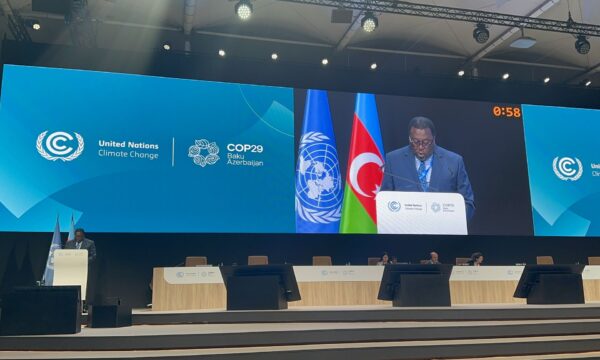World Environment Day (WED) on June 5th is used by the United Nations to encourage global awareness and stimulate action to protect the environment. It was established in 1972 on the same day that the UN Conference on the Human Environment began and the first WED was celebrated in 1973. Each year it is hosted in a different city with a different theme. This year’s WED will focus on ‘small island developing states and climate change’ in support of the UN designation of 2014 as the International Year of Small Island Developing States.
Barbados is hosting this year’s celebrations. As a small island nation, it is considered highly vulnerable to the effects of climate change, from the destruction of its ecosystems, to agricultural impacts. However, it is an island that has been recognized for its efforts to reduce its climate impacts, particularly in the field of renewable energy.
In 2012, Barbados and UNEP launched the Green Economy Scoping Study, designed to identify challenges and opportunities in the Island’s transition to a Green Economy. Also in 2012, the Barbados Declaration pledged that 29% of all electricity consumption would be generated from renewable sources by 2029 through a combination of biomass cogeneration, waste to energy systems and wind farms. If achieved, it is anticipated that this would reduce electricity costs by USD 284 million and reduce CO2 emissions by approximately 4.5 million tonnes.
The UN has declared 2014 as the International Year of Small Island Developing States (SIDS), which aims to raise awareness of environmental problems facing small islands. SIDS like Barbados have characteristics such as low-lying areas and limited water supplies that leave them particularly vulnerable to the effects of climate change, sea level rise and extreme weather events.
There are a number of potential adaptation measures for SIDS including engineering solutions such as the use of sea defences, adopting legislative solutions through revised building codes, land-zoning around rivers and coasts, water storage, hurricane resistant buildings, updating water policy and the use of drought tolerant crops. However, weak institutional and technical capacity and limited financial resources are often constraints that limit the options for implementation in SIDS.
Some island states are already rising to the challenge of climate change adaptation. A desalination plant, powered by a photovoltaic system in St. Vincent and the Grenadines has been installed to address water scarcity on the island of Bequia and is providing water for approximately 1,000 people. Earlier this year a project to 'climate-proof' a 7km coastal road in Kosrae was completed which involved redesigning the infrastructure to withstand heavier rainfall and higher sea levels in the coming decades. Fiji is currently in the process of testing crop varieties for tolerance characteristics to improve crop resilience and food security.
The Barbados Programme of Action (BPOA) and Mauritius Strategy for the Further Implementation of the BPOA calls for national, international and regional measures to support the sustainable development of SIDS. They recognise the impact that climate change poses to small island nations. Recommendations for adaptations proposed in the BPOA are strengthened in the Mauritius Strategy and include the transfer of technologies to address climate change, building scientific capacity as well as enhancing the implementation of global atmospheric observing systems.
Later this year, the Third UN Conference on Small Island Developing States will be taking place in Samoa and discussions will focus upon a renewed political commitment that addresses the special needs and vulnerabilities of SIDS through practical action. It is hoped that the outcomes from this high-level meeting will enable the strengthening of partnerships between islands and the international community and will build momentum towards a more sustainable future for these small island nations.
To find out more about World Environment Day 2014 events, visit the UNEP website.
Related articles
Related News & Blogs
Biodiversity loss: How can we reclaim our landscapes from threats to biodiversity?
On 22nd May, we mark the International Day for Biological Diversity. In this article, CABI’s Global Director for Invasive Species Dr Hariet Hinz looks at how we can reclaim our landscapes from threats to biodiversity. Biodiversity loss is proceeding at…
22 May 2025










